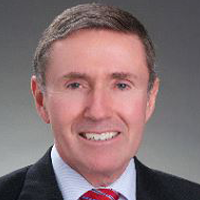
Ronald Schouten
Director of the Forensic Psychiatry Fellowship, St. Elizabeths Hospital (Washington, DC)
2021
Ronald Schouten is a clinical and forensic psychiatrist with specific expertise in the fields of targeted violence and behavioral threat assessment and management. He has served on consensus panels drafting guidelines on workplace violence for the FBI and the American Society for Industrial Security. He participated in the Office of the Director of National Intelligence Summer Hard Problem Programs focusing on bioterrorism and nuclear forensics and has presented to government and civilian audiences regarding personnel reliability programs, insider threat, and countering violent extremism. Schouten was a member of the Amerithrax Expert Behavioral Analysis Panel investigating the 2001 anthrax attacks. Schouten serves on the threat assessment teams of multiple corporations and educational institutions, was a member of the Community Connect Program at Boston Children’s Hospital and is a member of the MassBay Threat Assessment Team based in the Boston FBI Field Office. He was on the expert panel for the 2019 publication “Mass Violence in America” from the National Council for Behavioral Health. He is on the Advisory Board of Parents for Peace.
Schouten is the Immediate Past President of the New England Chapter of the Association of Threat Assessment Professionals and chairs ATAP’s Legislative Affairs Committee. He was the founding Director of the Law & Psychiatry Service of the Massachusetts General Hospital and the MGH/Harvard Medical School Forensic Psychiatry Fellowship and is an Associate Professor of Psychiatry at Harvard Medical School.

This cannot be thought of as a conference or a summit. The stakes are simply too high and the data/conversation and methods to drive action more valuable/motivating than any gathering I have attended. I took more than 100 pages of notes and have shared them with my CBS News leadership team, anchors, producers, and correspondents. Nothing about this gathering was easy. The agony around this topic is real. But no one curious about it could ask for a more devoted, rational, or unflinching look into this dark but decipherable world.
